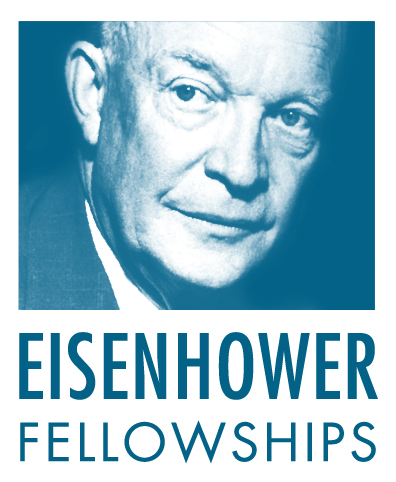At the Future of Work conference in Málaga, participants collaborated on iLabs, concrete projects with real world impact. EF iLabs were designed to be dynamic, collaborative sessions where participants proposed solutions to some of the most complex problems facing our societies today in regards to the future of work. Twenty Fellows and other special guests presented a total of 17 projects. The three iLab projects that received the most votes through an online poll in Málaga were presented at the conclusion of the conference. From Brazil to Finland to India, these projects illustrate the depth and breadth of the EF network.
Addressing environmental challenges, national economic development opportunities while integrating technology, the Digital Forest led by Mauro Rebelo (Brazil 2014) won first place in the iLab competition. The Digital Forest seeks to digitalize endangered species, document genetic code to protect them and provide opportunities to address the United Nations’ Sustainability Goals ensuring the existence of our planet in the future.
Career Coaching with AI, led by Harri Ketamo (Finland 2017) and Anu Passi-Rauste (Finland 2014), is a project that explores a new way of collaboration between human and machine, with artificial intelligence and bots (software robots) operating as partners for individuals. This project hopes to maximize the potential of the teacher by “shifting the premise for learning from formal education structures to micro-learning focused on individual’s current abilities, curiosity and potential.”
Promoting life skills development amongst young people from urban slum communities, Vishal Talreja (India 2014) focused on the importance of life skills in preparing the next generation for the future of work. Talreja’s project will be continued post conference through his organization Dream a Dream.
Learn more about the three projects here.
Speakers Ted Abernathy (USA ’01); Pilvi Torsti (Finland 2013) and Rosemary Howard (Australia 1991) focused on highlighting the emerging practices in Asia Pacific, The Americas and Europe that are being developed to shape preparedness for the future of work at personal, organizational, national, regional and global levels. There was a strong emphasis on learning, skills and capability development as well as relevant innovation, economic and social policy. Click here to see the results.
Immediate impact was also provided by Sr. Mary Scullion (USA 2003), who met with David Bueno Vallejo PhD, CIO of the City of Málaga and Mario Cortes, Head of Innovation and New Technology for the City of Malaga to tour their operations. They agreed to explore a small pilot program for youth, sharing learning, technology and language between the Honickman Learning Center/Comcast Technology Labs, Philadelphia and the City of Málaga, targeting a start date in early 2018. With an introduction by Juan Jose Guemes (Spain 2011), Sr. Mary also visited the Fundacio Tomillo, an organization in Madrid which provides training courses to assist youth with employment opportunities. Learn more about Sister Mary Scullion in this video.

